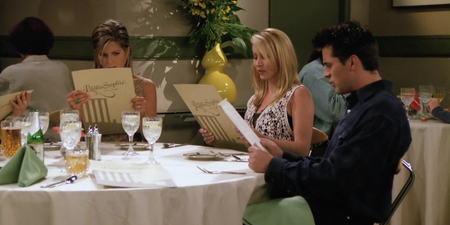Most of us, at one point or another, have had a friendship that is more damaging than uplifting.

Sometimes, it can take many years of putting up with a toxic friend before you realise that you don’t have to take it anymore. Equally, what starts out as a healthy friendship can become unhealthy as circumstances and individuals change.
As with romantic relationships, there are many reasons that platonic relationships become toxic. However, knowing how to recognise the warning signs can save you from the many heartaches that such a friendship can bring.
1. The taker
Every individual gets something back from their personal relationships, but a friendship must have equal levels of give and take to survive. If your friend is constantly taking – either emotionally or materially – it may be time to consider distancing yourself before they deplete all of your resources, financial or otherwise.
2. The green-eyed monster

Jealousy in any relationship is normal. In fact, a bit of ‘healthy competition’ can even be a positive factor in a friendship. If you have a friend who is constantly envious of your achievements, home, partner, car, clothes…you get the picture…then you need to look at what’s maintaining your friendship. Having to emotionally ‘manage’ a jealous friend, or even having to avoid mentioning certain topics around them, is a classic warning sign of a toxic friendship. If someone does everything in their power to minimise your accomplishments or belittle you (either privately or in front of others) something is seriously wrong. Real friends celebrate each other’s wins, not losses.
3. The emotional manipulator

This friend can be tricky to spot, at least in the beginning. Because manipulators are highly-skilled at getting exactly what they want from people (and situations) you might not even realise what’s happening before it’s too late. Adept liars, these charmers will frequently have you questioning your own sanity. Initially making you feel ‘special’, they will quickly dump you as soon as you have served your purpose, or if you are surplus to their requirements at any given time. Nothing is ever this person’s fault and they will play an Oscar-winning victim role if challenged about their bad behaviour. If this sounds like someone you know, the best thing you can do is run. Fast. Their behaviour is unlikely to change any time soon; primarily because they don’t see anything wrong with it (and it’s all your fault anyway!).
4. The liar
Do you have a friend who is a fan of ‘alternative facts’? If a large majority of what comes out of this friend’s mouth is questionable, or obviously false, something is up. While some people’s verbal diarrhoea is relatively harmless, their lies can have a knock-on effect on you. As the old saying goes, mud sticks. Crying ‘liar, liar, pants on fire!’ will probably only serve to make this individual defensive and cling harder to their ‘truth’. Very often, liars simply wish to impress others and suffer from low self-esteem; it’s up to you how much of Fibber McGee you can take before you wave bye-bye.
5. The one-upper

Oh really you bought it in there? I got mine in Paris, the quality is just soooo much better. Everyone knows someone like this but what if they are a good friend? The one-upper is similar in many ways to the liar as their ‘anything you can do I can do better’ behaviour usually stems from low self-esteem. You essentially have three options with this friend: eye-roll and ignore, change the subject, or play the game and mention something you have that she doesn’t. If you choose the latter, prepare to be there for quite some time.
6. The know-it-all
Everyone is entitled to a different opinion and opposites often attract. Healthy debate and varying points of view are to be expected in the lifetime of a friendship, but if someone challenges or argues down almost every point you make you have to ask what you have in common with this type of friend. If you find yourself constantly on the defensive – or feeling emotionally drained as a result of always having to stand your ground – then this friendship is a little too much like hard work.
7. The pessimist
Nothing ever goes right. Ever. The world is out to get this individual and that is pretty much all they talk about. Constant negativity can be difficult to deal with but it can also be a sign of depression. Try the gentle approach with a friend who can’t see the positive in any situation, their pessimism may just be a bad habit or it could signify that they need outside professional help to break the cycle of negativity.
Choose wisely
The bottom line is this; if a friend doesn’t appreciate you or regularly criticises, judges or puts you down, you have to ask yourself why you continue to put up with their behaviour? Toxic friends rarely change their behaviour, but you can always choose how you respond.














































